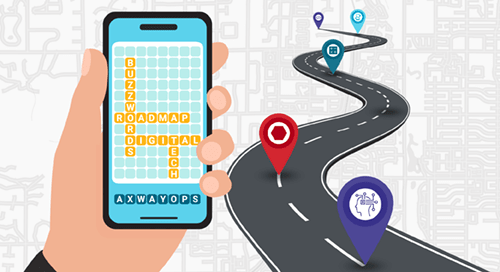Frontline perspectives on data security and breakthrough digital experiences
Balancing attitudes about protecting data and embracing life's digital marvels
From heartrate tracking and financial budgeting apps, to data storage in the cloud and AI tools such as ChatGPT, today's digital technologies continue to amaze. But the wondrous capabilities of next-generation, digital experiences bring with them a weighty caveat: the need for assurances in data security and personal privacy, as well as transparency in how data is used, stored, and monetized.
Understanding how consumers balance digital empowerment with concerns about security and privacy can give tech providers, developers, IT leaders, and product innovators across industries insight into feelings and behaviors that will significantly influence how they should move forward. This was the impetus for the Axway 2023 U.S. Consumer Survey.
The survey, conducted by Propeller Insights in September 2023, polled 1,001 American consumers of varying ages, genders, ethnicities and education levels, and explored consumer attitudes about:
- Healthcare data security, transparency, and accessibility
- Banking and financial data security and digital experiences
- General data security, transparency, and privacy
- Artificial Intelligence awareness and usage
- Effect of emergent issues in key industries
In healthcare, the protection, transparency, and accessibility of health records are key to ultimately giving consumers control over their healthcare data. Increasingly, consumers are using digital health apps and online platforms to engage healthcare services, but this has brought concerns about the security of data sharing as well as data stored in the cloud.
Amid a growing set of digital financial services capabilities including digital wallet, funds transfer through third-party sites, and financial management apps, consumers prioritize trust in financial service providers' ability to secure data. Headlines about financial fraud schemes and data continue to rankle consumers looking to engage in digital finance.
The same is true for companies representing a range of data-dependent industries, where cyberattacks threatening personal privacy and data integrity compel companies to meet demands for greater transparency in mitigating data vulnerabilities. Desire for assurances by Big Tech continues to rank high in consumer minds and concern over a widening talent gap in the tech industry doesn’t help matters.
Additionally, perceptions of data security in artificial intelligence and app learning – and associated trust in these nascent technologies – vary considerably among respondents, who often struggle to reconcile the need for uncompromised data security with a demand for exceptional digital experiences.
Main takeaways
62% of Americans want healthcare providers to share their health records with new providers with consent.
Most Americans (55%) use digital health apps or online platforms.
45% of the American public is unaware of the term open banking and what it does.
60% of Americans feel that open banking is positive, with 64% liking the idea of being able to compare financial services and switch among them.
Most Americans (61%) recently transferred money in the traditional way, citing that their banks don’t interact with each other and weren’t aware of a viable digital option.
Most Americans (62%) are concerned about the increasing sophistication of cyberattack schemes and feel like their banks don’t educate them enough about these things (66%)
Banking and financial services rank highest (57%) among Americans when it comes to trust in the protection of private information. Healthcare and life sciences (33%) is a close second, followed by Insurance (42%).
Americans would trust mobile apps and websites if they could block access to their personal data at any moment (84%)
See how your company measures up to the predicted digital trends for 2023







